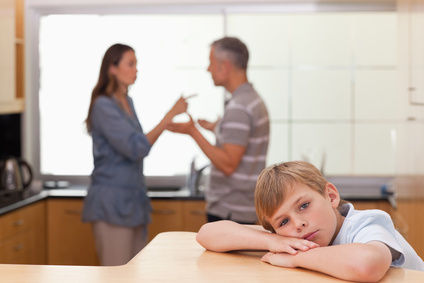Children and Divorce
- David Saavedra, LCSW

- Sep 5, 2021
- 3 min read
For children, separation and divorce can be an especially sad, stressful, and confusing time. But there are ways to help your kids cope with the upheaval of a breakup.

Helping your child through a divorce
A separation or divorce is a highly stressful and emotional experience for everyone involved, but children often feel that their whole world has turned upside down. At any age, it can be traumatic to witness the dissolution of your parent's marriage and the breakup of the family. Kids may feel shocked, uncertain, or angry. Some may even feel guilty, blaming themselves for the problems at home. Divorce is never a seamless process and, inevitably, such a transitional time doesn’t happen without some measure of grief and hardship. But you can dramatically reduce your children’s pain by making their well-being your top priority.
Your patience, reassurance, and listening ear can minimize tension as your children learn to cope with unfamiliar circumstances. By providing routines your kids can rely on, you remind them that they can count on you for stability, structure, and care.
How to tell kids about divorce
When it comes to telling your kids about your divorce, many parents freeze up. Make the conversation a little easier on both yourself and your children by preparing what you’re going to say before you sit down to talk. If you can anticipate tough questions, deal with your own anxieties ahead of time, and plan carefully what you’ll be telling them, you will be better equipped to help your children handle the news.
What to say and how to say it
Difficult as it may be, try to strike an empathetic tone and address the most important points right upfront. Give your children the benefit of an honest—but kid-friendly—explanation.
Tell the truth. Your kids are entitled to know why you are getting a divorce, but long-winded reasons may only confuse them. Pick something simple and honest, like “We can’t get along anymore.” You may need to remind your children that while sometimes parents and kids don’t always get along, parents and kids don’t stop loving each other or get divorced from each other.
Say “I love you.” However simple it may sound, letting your children know that your love for them hasn’t changed is a powerful message. Tell them you’ll still be caring for them in every way, from fixing their breakfast to helping them with homework.
Address changes. Preempt your kids’ questions about changes in their lives by acknowledging that some things will be different, and other things won’t. Let them know that together you can deal with each detail as you go.
Avoid blaming
It’s vital, to be honest with your kids, but without being critical of your spouse. This can be especially difficult when there have been hurtful events, such as infidelity, but with a little diplomacy, you can avoid playing the blame game.
Help your child grieve the divorce
For kids, divorce can feel like an intense loss—the loss of a parent, the loss of the family unit, or simply the loss of the life they knew. You can help your children grieve their loss and adjust to new circumstances by helping them express their emotions.
Listen.
Help them find words for their feelings.
Let them be honest.
Make talking about the divorce an ongoing process.
Acknowledge their feelings.
Let kids know they’re not at fault
Many kids believe that they had something to do with the divorce, recalling times they argued with their parents, received poor grades, or got in trouble. As often as you need to, remind your children that both parents will continue to love them and that they are not responsible for the divorce.
Give reassurance and love
Children have a remarkable ability to heal when given the support and love they need. Your words, actions, and ability to remain consistent are all important tools to reassure your children of your unchanging love.
Provide stability through the divorce
While it’s good for kids to learn to be flexible, adjusting to many new circumstances at once can be very difficult. Help your kids adjust to change by providing as much stability and structure as possible in their daily lives.
Credits: helpguide.org


Comments